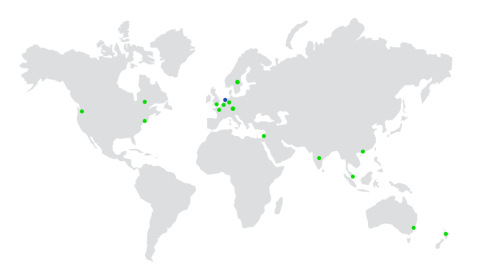
19 October 2020 – Planon is officially recognised as a supplier of cloud software on the G-Cloud 12 Digital Framework – an agreement between UK government and suppliers which allows public sector organisations to buy cloud services more easily when compared with entering into individual procurement contracts.
G-Cloud services are divided into 3 categories - cloud hosting, cloud software and cloud support. Cloud software suppliers like Planon provide applications that are accessed over the internet and hosted in the cloud.
Planon’s fully cloud-based IWMS platform offers organisations role-based interactions within one single technology. Business users, Real Estate Managers, Back Office Specialists, Engineers, and even Service Providers are unified in one integrated platform which provides them with relevant and easy to use functionalities on the device of their choice. The Planon SaaS solution is installed within our state of the art cloud platform and is based on Amazon Web Services technology which guarantees system availability.
The G-Cloud system is intended to streamline the procurement process for public sector organisations, offering them an easy way of buying services without the need to run a full tender process. It also allows them to search for suppliers and evaluate them against a list of requirements.
To be accepted onto the framework, G-Cloud suppliers are legally required to meet a set of minimum standards and must provide information about their company, their services and the way they work, e.g. pricing, data storage and security, and whether their services are based on open standards.
Marcel Groenenboom, General Manager EMEA West, Planon, said, ‘The COVID-19 pandemic is already accelerating cloud adoption, not just as a technological shift, but also as an operational model. Cloud services have suddenly become essential for business continuity, especially now that we are dealing with unprecedented uncertainties and physical lockdowns, and organisations need to support their employees remotely for an extended period of time.’



















